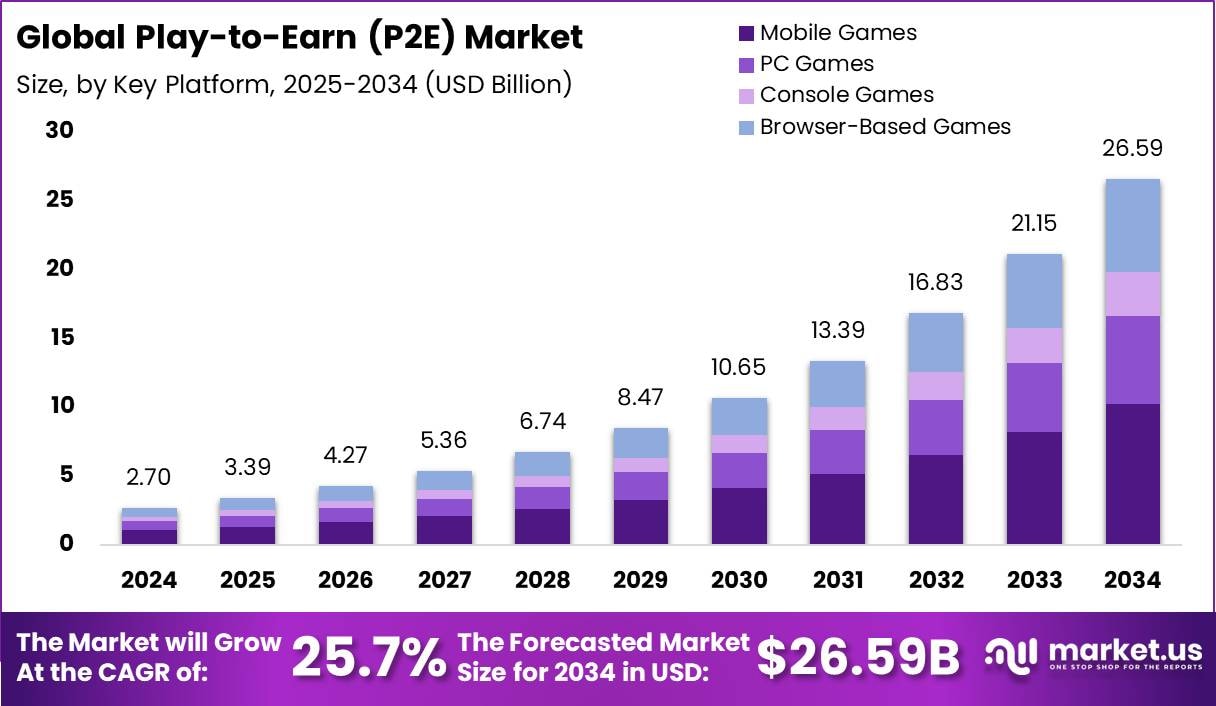BGREEN TV: Your Source for Green Innovations
Explore the latest trends and innovations in sustainable living, eco-friendly technology, and green entertainment.
Crypto Gaming Trends: Where Pixels Meet Profit
Discover the hottest trends in crypto gaming and learn how pixels are turning into real profits. Dive into the future of play-to-earn now!
Exploring the Rise of Play-to-Earn Games: A New Era in Crypto Gaming
The emergence of play-to-earn games has signaled a significant shift in the landscape of crypto gaming. Unlike traditional gaming, where players invest time and money without tangible returns, these innovative platforms allow users to earn cryptocurrency and non-fungible tokens (NFTs) through engaging gameplay. This model not only incentivizes players but also democratizes wealth distribution in the gaming ecosystem. As blockchain technology continues to evolve, the potential for game developers to create immersive worlds that reward players with real financial gains becomes increasingly viable.
As more players are drawn to the concept of play-to-earn, the industry has witnessed explosive growth, with titles like Axie Infinity and Decentraland leading the charge. This new era in crypto gaming is creating opportunities for individuals worldwide, especially in regions where traditional job markets may be limited. Furthermore, the integration of skills and strategies in these games cultivates a competitive landscape, encouraging a community of players who are not just participants but also investors in their gaming journey. As we explore the future of gaming, it's clear that the rise of play-to-earn games is just the beginning of a transformative trend.

Counter-Strike is a popular first-person shooter game that has captured the hearts of players since its release. With its strategic gameplay and team-based mechanics, it offers an engaging experience for both casual and competitive gamers. Players often look for ways to enhance their gaming experience, and many seek out a shuffle promo code to unlock special features and benefits.
How NFTs are Revolutionizing In-Game Assets and Ownership
The emergence of NFTs (Non-Fungible Tokens) has set a transformative wave through the gaming industry, redefining the concept of in-game assets. Unlike traditional in-game items that are often locked within a game's ecosystem, NFTs allow players to truly own their digital assets, meaning these items can be bought, sold, and traded on various marketplaces. This shift empowers players, granting them the freedom to manage their virtual possessions much like physical collectibles, increasing their value over time. As a result, game developers are starting to incorporate NFT technology to enhance player engagement and loyalty, paving the way for new business models centered around player ownership.
Furthermore, integrating NFTs in gaming not only elevates ownership but also ensures uniqueness. Each NFT is built on blockchain technology, proving provenance and authenticity, which is a stark contrast to traditional game assets. Gamers can now showcase their rare in-game items on social media or even use them across multiple gaming platforms, creating a cohesive and interconnected gaming experience. This innovative approach to in-game economics fosters a thriving secondary market, where players can monetize their skills and investments, signifying that NFTs are not just a trend, but rather a fundamental shift in how we perceive virtual ownership in the gaming world.
What You Need to Know About the Future of Blockchain Gaming?
The future of blockchain gaming is poised for transformative growth, leveraging the unique advantages of decentralized technology. As players demand greater ownership of in-game assets, blockchain offers a solution through non-fungible tokens (NFTs), enabling players to truly own, trade, and sell their digital items across various platforms. Moreover, blockchain’s transparency promotes trust and reduces fraud, reshaping player experiences and engagement. Industry experts predict that by 2025, the number of blockchain gamers could reach over 1 billion, signaling a significant shift in how games are developed and played.
Furthermore, innovations such as play-to-earn models are becoming increasingly popular, allowing players not just to enjoy games but to earn real-world value through their gameplay. This trend is creating new economic opportunities, particularly in emerging markets. However, it's important for developers and players to remain vigilant about the potential challenges, such as regulatory scrutiny and environmental impacts due to energy-intensive blockchain operations. As the blockchain gaming landscape continues to evolve, staying informed will be crucial for anyone looking to capitalize on this burgeoning frontier.